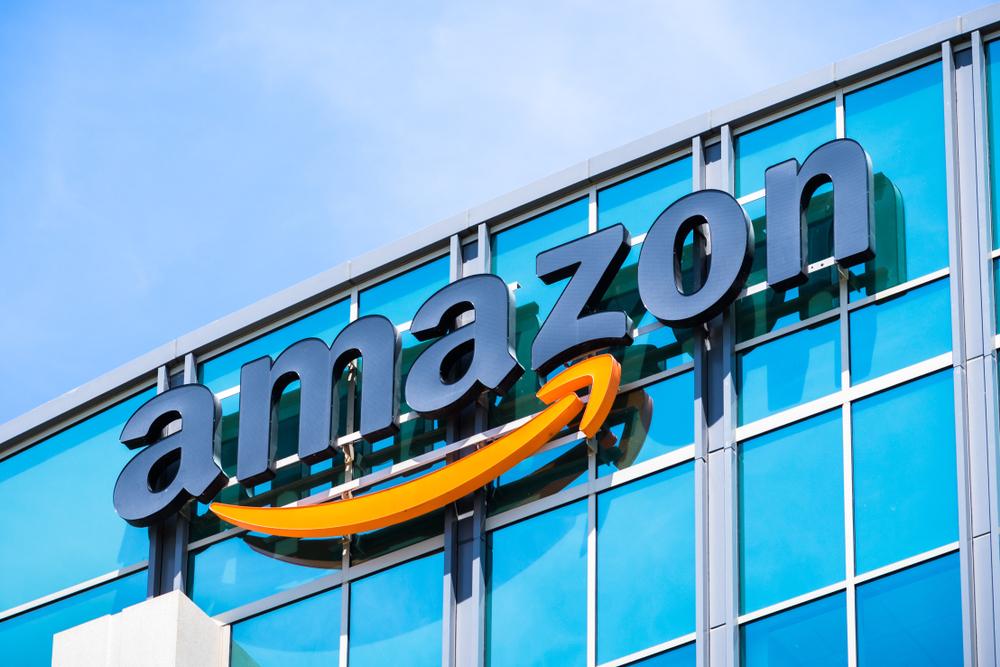In a climate crisis so imminent and life-threatening, polluting the planet with greenhouse gases is a no-go. But some of the people and companies responsible for that pollution are trying to make themselves look like climate change heroes. People who have overcome 2020 with earth-friendly words in order to secretly destroy the earth. Earthher's Dharna Noor introduces us to some of the biggest climate change liars of 2020.
Jeff Bezos and Amazon
Well, Amazon is a true climate change hero. Most recently, he signed a letter calling on the US government to return to the Paris Agreement. This is not all. Earlier in 2020, it announced a new pledge to gradually reduce carbon pollution and committed $2 billion to clean energy venture capital. In addition, founder Jeff Bezos created the $10 billion Climate Fund, effectively doubling the amount American philanthropists spend on climate change. Even better, they named an ice hockey stadium in Seattle, Washington, "Climate Pledge Arena." It's already amazing and I'm tired.
But the problem here is that the seemingly good-looking effort doesn't really make sense at all. While Amazon and Bezos brag about how sustainable their operations are, they continue to use technology to help oil and gas companies extract fossil fuels more efficiently. . Akan Yan.
Bezos' Climate Fund also has problems. As I wrote last February, don't rely on billionaires to solve climate change. Only the rich should pay taxes. Then we can solve climate change democratically. Amazon's venture capital fund, on the other hand, invests in companies that look like they're going to do good, but if they do, it could end up putting more wealth in the hands of a few. yeah. The real climate action should end the fossil fuel industry, but it seems unlikely that Amazon would invest against the interests of the oil and gas companies it trades with...
Amazon ranks among the top 200 most polluting companies in the world, but that's not what the company's press release says. And the company has been very hostile to any employee who tries to point out such discrepancies. Please take the money and power away from this climate change lying company.
ExxonMobil
2020 has not been a good year for Exxon. Last fall, Exxon lost its position as America's largest energy company to Chevron. The Exxon kingdom collapses. Shortly after, Exxon analysts revealed that the company was facing financial losses for three consecutive quarters. Analysts believe they may never recover from the damage caused by the coronavirus-induced oil crash, according to leaked documents. I don't think it's a good idea to add another blow to a depressed company, but it may be self-deserving because it cut off employees to protect shareholders.
In 2020, Exxon acknowledged for the first time that ``the risks of climate change are real,'' and ``committed to being part of the solution,'' was to reduce methane emissions and gas usage. It's true that I made a public promise, but what I say I'm watching the company's actions is the opposite of what I'm doing.
Exxon plans to increase carbon pollution by 17% over the next five years, according to an internal document leaked last October. teeth? I'm feeling. The increase is equivalent to the annual emissions of all of Greece. And according to a 2020 report, Exxon donated $690,000 to eight climate science deniers in 2019. This is only 10% less than in 2018. $0 is, of course, a reasonable amount for a company to be part of a climate change solution. It's no good.
Fossil fuels are warming the planet in the first place, so no oil company is climate-friendly. A study last September found that Exxon had the worst climate change plan of any major fossil fuel company.
ExxonMobil's primary business is the fossil oil and oil industry that contributes to the climate crisis, said David Tong, senior campaign manager for the energy transition and futures team at Oil Change International, which conducted the study. It's about producing and selling gas, and there's no indication that the company's upper management will change course anytime soon." None of the oil companies met the goals of the Paris Agreement, but as Tong said, "ExxonMobil was the worst of the bad guys."

Coca-Cola
Coca-Cola is a nightmare for the natural environment. The production and disposal of some 3.3 million tonnes of plastic packaging each year adds hundreds of millions of tonnes of pollutants to the world's air and waterways, causing global warming and health hazards. Moreover, last year, he said he tried hard to hide the fact. It's not a refreshing Coca-Cola at all.
At the outset of what should be a major opportunity to combat climate change, the World Economic Forum, the company's sustainability chief said it would continue to use single-use plastic containers in its products. What's more, he boldly said that it was not a decision to maintain the business model, but that "consumers love plastic." No, consumers want plastic away, but...
Since then, Coca-Cola has been focusing on half-baked measures. By 2022, the company will have 100% recycled plastic packaging in 18 markets around the world and will switch from plastic to paper can and bottle holders in all EU markets and Switzerland. It's a good thing, but it doesn't get to the heart of the matter that the world can no longer handle plastic without polluting it. I guess that's not the problem...
John Hocevar, Greenpeace's marine campaign director, said in an email. “Even though science tells us we need to move away from single-use plastics to protect the health of our oceans and communities, Coca-Cola continues to produce more and more plastic bottles, nearly 110 billion a year. of plastic bottles are produced to be thrown away after a few minutes of use.”
Plastic bottles, which almost always end up in incinerators or landfills, create emissions that threaten global warming and health. Others are often dumped as garbage everywhere, from the side of the highway to the middle of the ocean. In a study released last December by Break Free From Plastic, Coca-Cola was named the world's most plastic polluting brand. And three years in a row. It seems that there is no enemy wherever I go. The study identified and recorded the number of brands of plastic waste found around the world. Of the 346,494 plastics collected in 55 countries, 13,834 were Coca-Cola's in 51 countries, even the second and third largest polluters combined. Isn't it overwhelming Coca-Cola...
This is happening because we continue to use single-use plastics. As of October 2019, the company's PET bottle recycling rate was about 9%, but that number doesn't seem to change. Even if they are recycled, they are destined to be burned or thrown away sooner or later. Single-use plastics are rarely recycled more than once. Environmentalists are desperate to stop Coca-Cola's plastic pollution. In February of last year, it took action against companies such as PepsiCo and Nestlé, demanding payment for clean-up costs for contaminated areas and a ban on "recyclable" labels because much of it is not actually recycled. Coca-Cola is being sued, along with other major plastic polluters like. Well, what will happen?
Tesla and Elon Musk
Tesla may have the image of being an eco-friendly company thanks to its solar panels and electric cars, but don't be fooled. Don't. In fact, Tesla is the definition of a “climate change liar.”
It goes without saying that clean power is an absolute necessity. However, when producing clean energy, care must be taken not to harm biodiversity or people.
Simply, Tesla didn't do the right thing. According to a 2016 Washington Post article, Tesla's supply chain relies on graphite from China and lithium and cobalt from Argentina and the Democratic Republic of the Congo, both polluting the environment. . This is not sustainable business management.
Also, Tesla is an electric car. Sure, electric cars may be greener than diesel cars, but the majority of the electricity they use to charge them still comes from fossil fuels. So the most sustainable use of EV technology right now is to carry more people on public transport than on electric vehicles. That way we can reduce carbon pollution.
But Mr. Musk doesn't like public transportation. Or rather, critical. Tesla has raised about $50 million to develop a public transportation chick that runs short distances in tunnels under Los Angeles. But it seems that it's basically designed to encourage people to travel by car instead of the earth-friendly buses and trains.
By promoting car travel, Musk implicitly supports more roads, but studies show that new roads will be filled with people. . If that happens, the amount of carbon dioxide emissions that cause global warming will increase, and air pollution caused by automobiles will also occur. Studies show that the roads themselves also contribute to air pollution. I'm already stepping on it and kicking it.
In addition, the poor treatment of Tesla workers is also a problem. Early last year, we ignored a shutdown order amidst the rapid spread of COVID-19. Also, Tesla has an above-average number of work-related injuries. Tesla claims that the problem has been resolved, but the reports are the complete opposite. Mr. Musk is trying to stop it by all possible means for employees who are trying to form a union and improve their terrible treatment. A company that treats its employees this badly cannot be sustainable. As we enter 2021, Musk has continued to try to do something about climate change other than paying taxes, such as declaring a $100 million prize for the best carbon capture technology. There seems to be
We really want people to think of us as a green company. That's why executives are debating the sustainability of the tech industry. The company also signed a letter calling on government officials to return to the Paris Agreement and implement climate change policies. And in September 2020, the company claimed to be "carbon neutral."
But behind the scenes, it still emits millions of tons of greenhouse gases. So what is Google claiming to be carbon neutral and sustainable because it causes carbon pollution while also funding green projects? By capturing the methane gas that is leaking, mostly from pig farms and landfills, it seems to be trying to offset its own pollution and ease a little of the guilt of exacerbating climate change. Methane is certainly a problem, but cutting it elsewhere doesn't make Google's greenhouse gas emissions go away, right?
What Google did, which said in a plan it announced in September that it wanted to "help cities and businesses to reduce their environmental impact," was to sell their products. It seems to be a plan to profit from the transition to renewable energy of other companies.
I may sound old-fashioned, but I don't think the clean energy revolution is just letting tech companies make money. Tax it instead. Then we can decarbonize in a more democratic way.




















